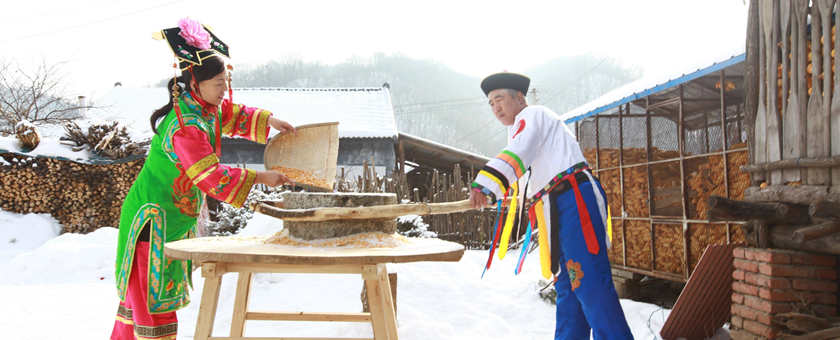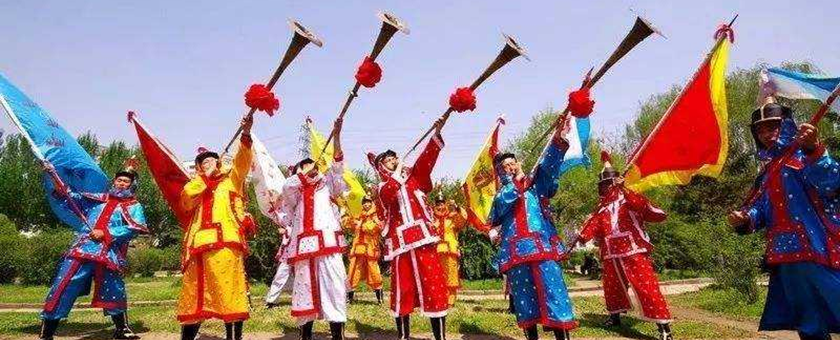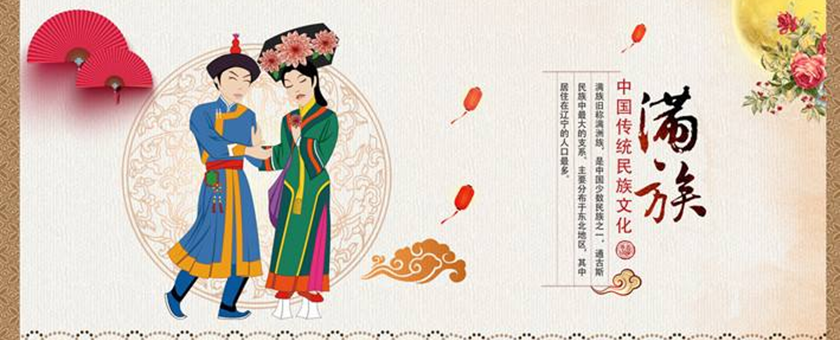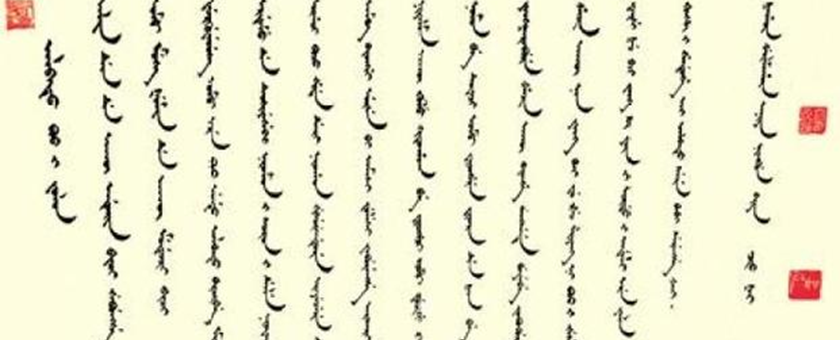info@chinaadventure.org
86-18008011324
Search
The total population of the Manchu people is 106,82,000 (2000), ranking second among the 55 ethnic minorities in China. In 1644, Qing army entered the pass and gradually unified the whole country. From then on, Manchu aristocracy began to rule the whole country. After the revolution of 1911, Qing Dynasty collapsed. Manchu are a hard-working, brave and intelligent people. It is also a nation that is good at absorbing foreign culture and integrating innovation. In the long-term historical development, the customs and culture with national characteristics have been formed. The customs of Manchu people are mostly similar to those of the Han people, but they still maintain many Manchu characteristics.

History of Manchu Nationality
Manchu nationality have a long and splendid history of nearly 1400 years, dating back to the Sui (581-618) and Tang (618-907) Dynasties. Originating from the Jurchen Tribe, Manchu had a major influence on Chinese history, establishing the Jin Dynasty (1115-1234) and the Qing Dynasty (1644-1911). As late as 1911, Manchus were called "Ba Qi", which means a unique structure of the Manchus.

Distribution of Manchu Nationality
Due to historical reasons, Manchu Ethnic Group is scattered throughout the country, with the largest number living in Liaoning Province. The rest are scattered in Jilin, Heilongjiang, Hebei, Inner Mongolia, Xinjiang, Gansu, Shandong and other provinces and regions, as well as Beijing, Tianjin, Chengdu, Xi 'an, Guangzhou, Yinchuan and other large and medium-sized cities.

Language and Character
Manchu people have their own language and characters. Manchu language belongs to the Altaic Manchu - Tungusic language family. Manchu script was founded in the late 16th Century. In the Song and Jin Dynasties, Nuzhen people had their own characters. In the early period, Nuzhen characters were the syllables of words that were derived from Chinese characters, but they had been lost for a long time.
As an official language, Manchu was used for a long time in the Qing Dynasty and once became a widely used language in the whole country. Today, there are still a large number of Manchu phonetics and vocabulary in the Chinese language in northeast China and Beijing.

Religion
Manchu people used to believe in Shamanism, which was divided into the Palace Branch and the Folk Branch in the early days. The former is usually performed by a mage priest in the palace. In the early Qing Dynasty, those who were qualified for the position of "Shaman" were mostly intelligent people who were proficient in the Aisin Gioro dialect. Shamans were used to chant sutras and perform religious dances during court ceremonies. Shamanism was popular among the Manchu people of Ning pagoda and Aihui areas in northeast China until the liberation of the country.
Military victories and triumphal processions or returns are inevitably celebrated with Shamanistic rituals. Until the eve of the country's liberation, sacrifice to gods and ancestors was still a major event for the Manchu people in Aihui county.

Diet
Manchu food is very characteristic, the most representative of the integration of Manchu and Han food culture is the "Manchu and Han banquet". The selection, preparation and eating methods of its dishes have maintained the Manchu characteristics, among which the mountain treasures such as Hericium Erinaceus, bear paw, ginseng, deer antler and so on are mostly from the northeast region. In daily life, there are many kinds of folk snacks. They like to eat millet, rice and rice bobo. When it comes to festivals, Manchu people like to eat "AI Ji Ge Bo" (Dumplings). Today's dumplings, hot pot, pickled cabbage and Beijing-style cakes in northern China are all closely related to the Manchu food culture.

Custom
When a child is born, hangs a bow and arrow in front of the door, which symbolizes that he will become an excellent archer in the future. When he is six or seven years old, he will practice shooting with a wooden bow and arrow.
When a woman carries a whip, she is no less than a man. When a girl marries, bow, arrow and deerskin clothing are necessary. The car enters, and the bridegroom shoots three arrows. Manchu children's songs and folk songs also left a deep trace of hunting life.

House Style:
Manchu house is divided into three floors, with a kitchen in the middle and a bedroom and living room in the wings. Traditionally, there are three "Kang" (brick beds that can be heated in winter) in the bedroom, placed along three walls: west, north and south. Guests and friends are usually given to the western "Kang", the northern elders and the southern younger generation. Since the windows usually face south and west, the houses are warm in winter and cool in summer.

Costume
The ancestors of Manchu people lived in the northeast of China. In order to adapt to the cold climate, they chose gowns as their daily warm clothing. In the middle of the Ming Dynasty, the bell-bottom trousers of the Han Nationality were absorbed into the clothing of the Manchu Nationality. After the establishment of the Qing Dynasty, Manchu nobles promoted their costumes throughout the country. By the time they came to the republic of China, some fashionable elements of western clothing had borrowed Manchu clothing and the modern cheongsam appeared on the stage of history. Nowadays, cheongsam has become the traditional dress of Chinese women, especially Han and Manchu.

Festivals
The traditional festivals of the Manchu Nationality are similar to those of the Han Nationality. During the Chinese New Year, the Lantern Festival, the Dragon Boat Festival and the Mid-Autumn Festival, unique sports like skating are included in Manchu celebrations.
Taboos
Manchu people have a special liking for dogs. It is forbidden to beat or kill dogs. They do not eat dog meat. Don't chase the dog in front of the owner, and don't say anything bad about the dog. Otherwise, the owner will think you are insulting him to his face
Manchu people, especially young people, are forbidden to sit on the west Kang, and women are forbidden to give birth on the west Kang.
In addition, Manchu people were not allowed to shoot magpies and ravens, nor were they allowed to tie their livestock to tree poles.
Singing and Dancing
Ancient Manchu people liked singing and dancing, which evolved from hunting and fighting. The dancers are normally strong wear leopard skin and sing the Manchu songs, accompanied by clarionet and drum, known as "happy Dance". For “Longqing Dance”, half of the dancersmay dress as tigers, leopards and other animals, and the rest people ride a fake horse. During the festive banquet, the host and guest take turns to dance.

we’ll reply you in 24 hours!
Copyright © 2012-2024 All Rights Reserved to chinaadventure.org